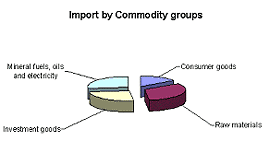 THE GOVERNMENT AGENDA THE GOVERNMENT AGENDA |
The current government of the National Movement Simeon II (NMS) was appointed in 2001. The political movement led by Bulgaria's former king Simeon II Saxe Coburg-Gotha won the general elections held on June 17, 2001, but fell short of winning outright majority in Parliament by one seat. Simeon II accepted the position of Prime Minister, this boosting the prospects for political stability. The NMS and the Movement for Rights and Freedoms formed a cabinet coalition. The new cabinet pursues the following agenda: to streamline the effective tax system by eliminating any VAT and patent tax preferences and by cuts in the rate of corporate, profit and personal income taxes; the attraction of foreign investments in high technologies, telecommunications, energy, agriculture and tourism; the completion of the privatization of the large state-owned utility monopolies and of the large state-owned enterprises. The combat against crime, corruption and tax evasion are also high on the government agenda.

No major shift in economic policies is expected under the new government. The main challenge that will be crucial for Bulgaria's accession to the EU is the implementation of the structural reforms and the planned privatization program. Major restructuring is expected in the sphere of energy, telecommunications and tobacco. The incumbent government will have to compensate for a several-month delay in the process of privatization and structural reforms caused by the elections. A major issue will be to tame unemployment that has remained steady at the 17-18% level for more than two years.
The new Government has pledged to cut the jobless
rate to some 10-12% of the workforce, which is a
difficult task in view of the unavoidable redundancies
and lay-offs resulting from streamlining operations
in all sectors and state-owned companies. Meeting
both objectives - successful structural reforms
and cutting unemployment is a major challenge and
a litmus test for policy commitment. |

Implementation of the Government's program will be made even more difficult as declining export demand from Europe will have a negative impact on exports and will exert a negative pressure on GDP growth. Currently Western Europe accounts for some 50% of Bulgaria's exports



 |

